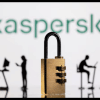US bans Kaspersky over security risk from Russia

The U.S. government announced a ban on the sale of Kaspersky antivirus software on Thursday, urging American users to switch to alternative providers due to national security concerns. The US Commerce Department's Bureau of Industry and Security imposed the ban, arguing that Kaspersky poses a threat to US national security and user privacy because the company is based in Russia.
"Russia has shown it has the capacity and the intent to exploit Russian companies like Kaspersky to collect and weaponize the personal information of Americans and that is why we are compelled to take the action that we are taking today," US Commerce Secretary Gina Raimondo said on a briefing call with reporters.
Raimondo also mentioned that US consumers currently using Kaspersky's antivirus software are not breaking the law. However, she strongly recommended Americans to stop using the software immediately to protect individual data.
Starting from July 20, Kaspersky will be prohibited from selling its software to US consumers and businesses. The company can continue providing software and security updates to existing customers until September 29. After this date, Kaspersky will no longer be allowed to issue updates to its U.S. clients.
To ensure consumers are well-informed, Raimondo announced that the Department of Homeland Security and the Justice Department will notify US consumers and set up a website providing necessary information and guidance for those affected.
Previously in September 2017, the US government prohibited federal agencies from using Kaspersky software over concerns it could aid Russian intelligence agencies.
According to their website, Kaspersky has more than 400 million individual customers and over 240,000 corporate clients globally. The senior official did not disclose the number of US customers but noted that it includes critical infrastructure organisations and state and local government entities.

 For all latest news, follow The Daily Star's Google News channel.
For all latest news, follow The Daily Star's Google News channel. 




Comments